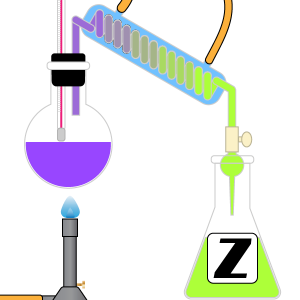From the composition of our atmosphere to the salt in our oceans, chemistry is a fundamental science that touches every aspect of our lives. In modern day, chemistry is used daily in manufacturing, medicine, and even food production, and yet, there is much we don’t know about this vast and complex discipline. Chemists have devoted their lives to the exploration of chemical phenomena, and each new discovery reveals breathtakingly intricate and countless ways that chemistry exists within—and outside—our world. https://safrole.com/knowledge-base/
Molecules and Atoms: The Building Blocks
At the most basic level, chemistry involves the study of molecules and atoms. Every substance is made up of some combination of these two small particles. All elements are composed of atoms, which are made up of a nucleus surrounded by electrons. Molecules, however, are made when two or more atoms bond together. An atom of one element can join with an atom of another element to form a molecule, or two atoms of the same element can join together to form a molecule. Both molecules and atoms are involved in numerous chemical processes.
The Laws of Physics and Chemistry
Chemistry is largely based on the laws of physics, such as the law of conservation of energy and the law of conservation of mass. These laws dictate how chemical reactions occur and the results they will yield. Therefore, chemists must be knowledgeable in both fields in order to properly interpret and understand the results of a reaction. It is also important for chemists to understand the forces of nature, including quantum mechanics, thermodynamics, magnetism, and electricity, as these also play important roles in the behavior of atoms and molecules.

Analyzing Chemical Reactions
Chemists often use different tools to analyze the structure and behavior of molecules and atoms during a chemical reaction. These tools include microscopes, spectroscopy, chromatography, and crystallography. With these instruments, scientists can study the shape, size, and arrangement of a molecule, as well as how it reacts to other substances. This analysis helps chemists determine the composition of a substance, its reactivity, and the overall outcome of a reaction.
Organic vs Inorganic Chemistry
Organic Chemistry is the study of compounds made primarily from carbon and hydrogen. Examples of organic compounds include proteins, sugars, and many other biomolecules. Inorganic Chemistry, on the other hand, deals with compounds that do not contain carbon, such as metals and minerals. Although organic chemistry is more extensively studied than inorganic chemistry, the two areas are intertwined in many aspects, such as biochemisty and engineering.
Chemical Complexity
Chemistry is also known for its complexity. Many aspects of the physical world cannot be explained through simple equations. There are countless variables and unknowns involved in any given reaction, which makes predicting the outcomes of a chemical process difficult. Due to this complexity, chemists must be creative when analyzing the results of a reaction and also develop creative methods to control the outcomes.
Chemistry at Work
Chemistry plays a crucial role in the current world. From pharmaceuticals to fuel, many everyday items are produced through various forms of chemical engineering, from polymers to nanomaterials. By understanding chemical principles and using appropriate tools, chemists are able to create materials and products that meet specific needs. Most recently, chemists have been working on developing new technologies and techniques to address environmental issues, such as renewable energy sources and pollution control.
The Exciting Possibilities of Chemistry
In conclusion, the field of chemistry continues to evolve as scientists learn more about the inner workings of the chemical universe. With each new discovery, chemists gain a better understanding of the complexities of the physical world, leading to exciting possibilities for future technological advancements in the field. Chemistry is a dynamic and ever-evolving field of science that holds plentiful potential and endless possibilities.


